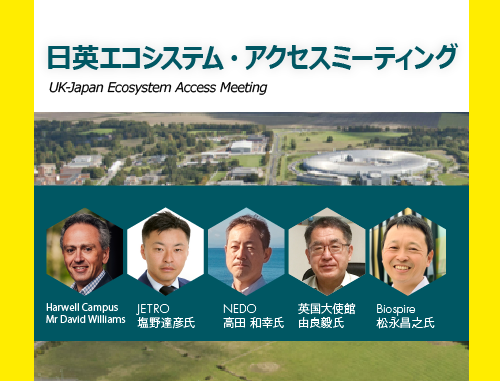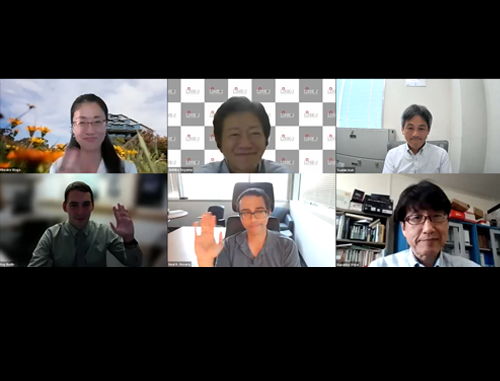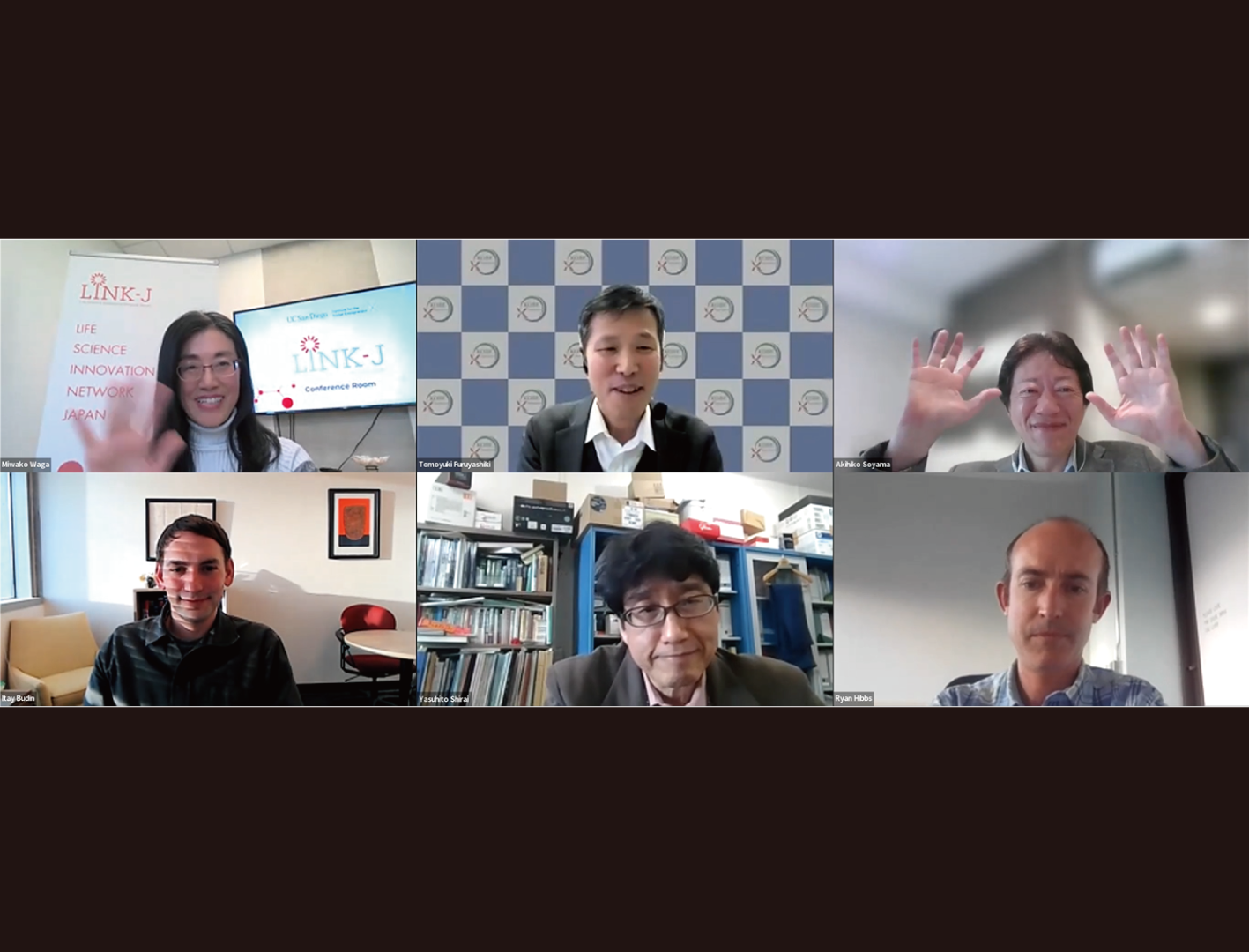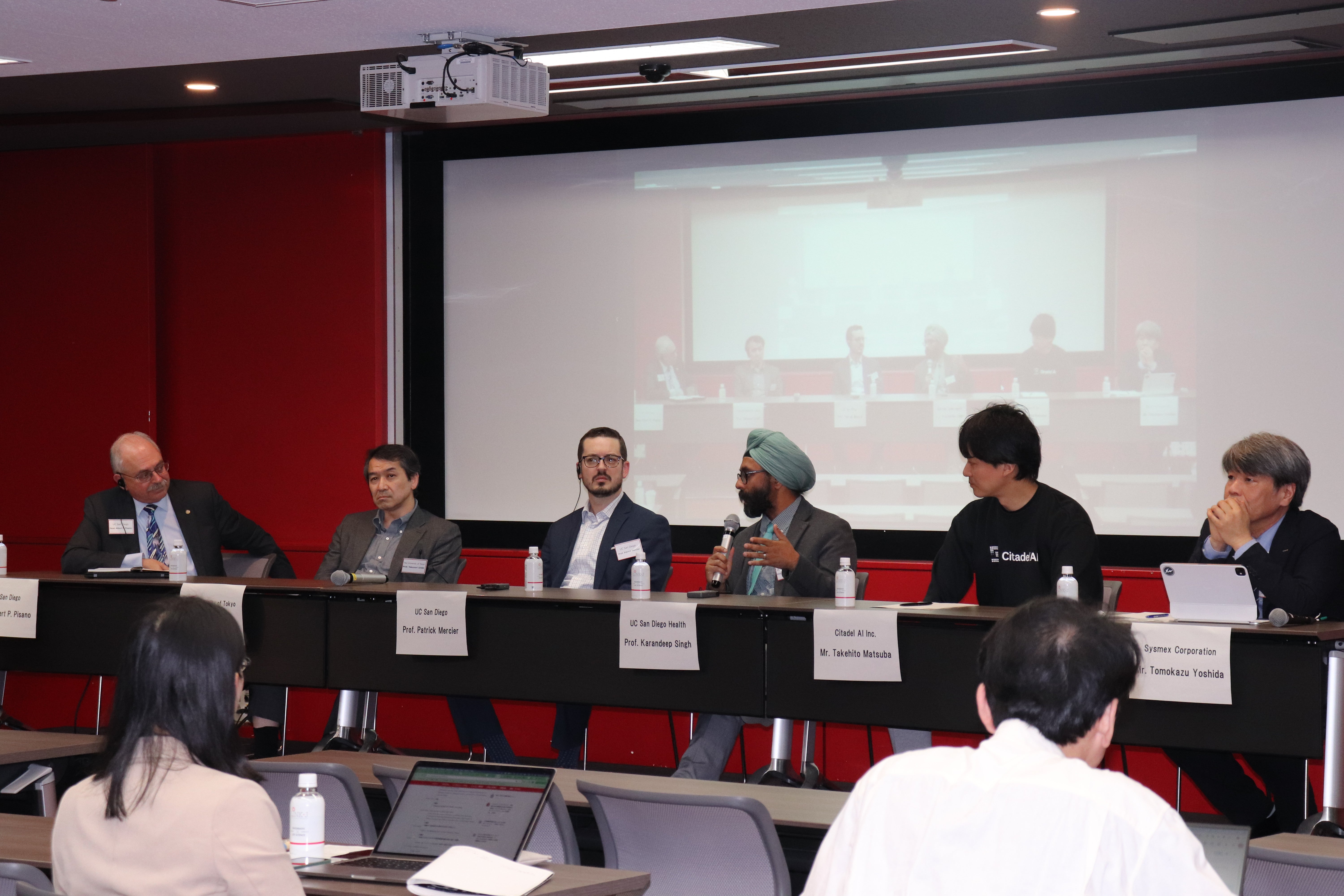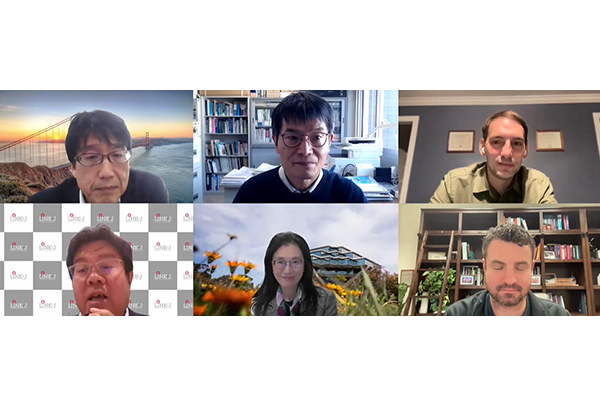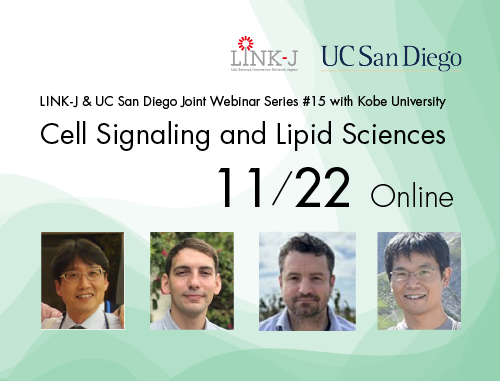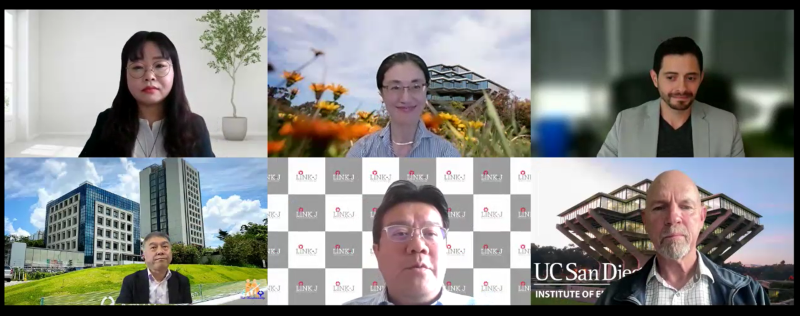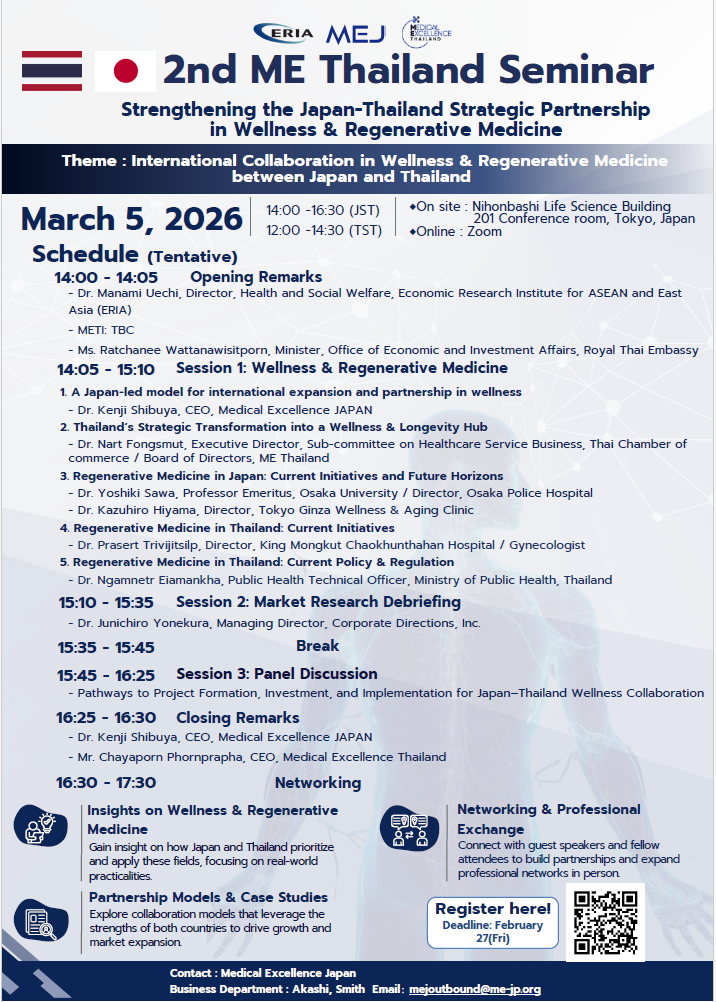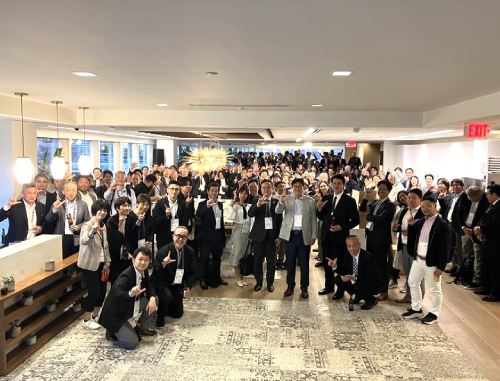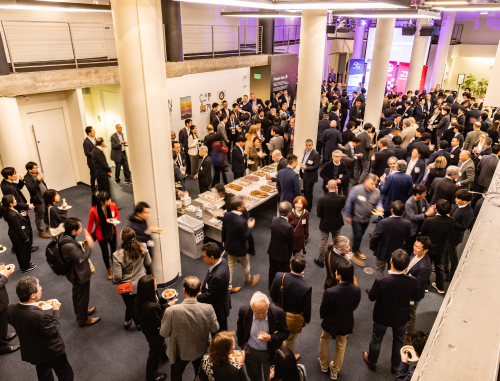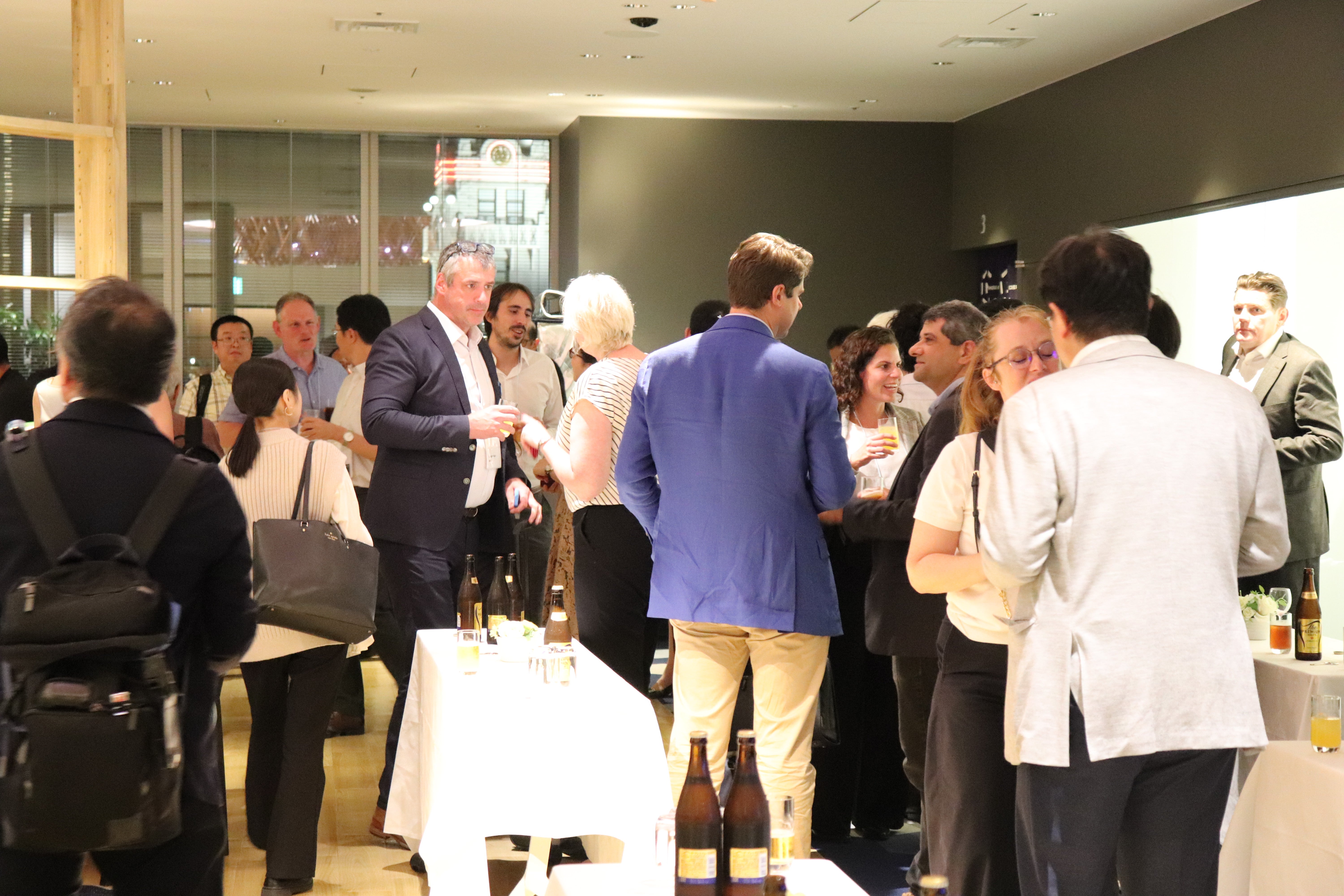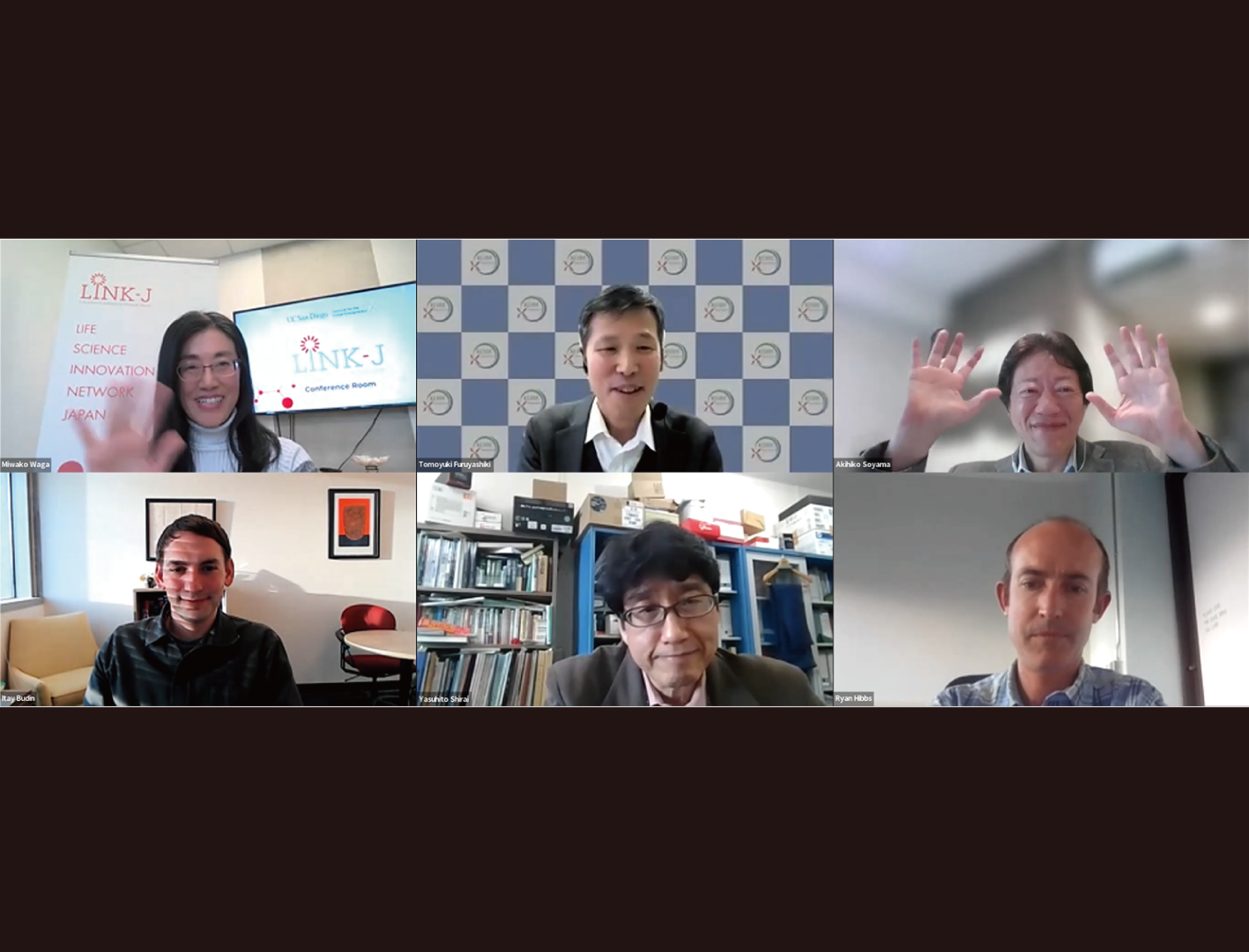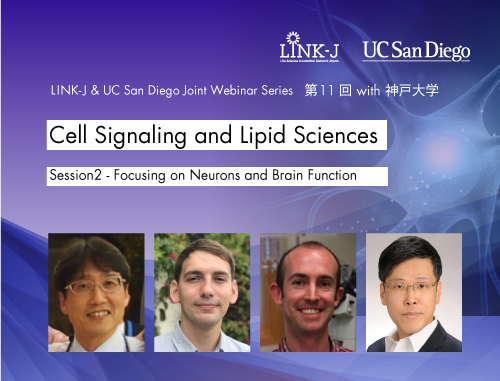LINK-J & UC San Diego Joint Webinar Series #13 with Kobe University "Cell Signaling and Lipid Sciences" Session 3 - Focusing on Signaling Pathways in Cancer was held on November 29, 2023. (Host: LINK-J, Co-Host: University of California San Diego [UC San Diego])

Speakers
Dr. Jin Zhang (Professor and vice Chair, Department of Pharmacology & Professor, Departments of Chemistry & Biochemistry and Bioengineering, UC San Diego)
Dr. Tomohiko Maehama(Associate Professor, Kobe University Graduate School of Medicine)
Dr. Yasuhito Shirai, Professor, Graduate School of Agricultural Science, Kobe University
Dr. Itay Budin (Assistant Professor of Chemistry & Biochemistry and Bioengineering, UC San Diego)
Ms. Miwako Waga, Senior Director of International Innovation Outreach, UC San Diego Office of Research and Innovation
Dr. Shunichi Takahashi, Ph.D., President and Chief Operating Officer, LINK-J
Presentations
"Illuminating the Biochemical Activity Architecture of the Cell"
Dr. Zhang's talk (Professor and vice Chair, Department of Pharmacology & Professor, Departments of Chemistry & Biochemistry and Bioengineering, UC San Diego)
The complexity and specificity of cellular processes require spatial microcompartmentation and dynamic modulation of the underlying biochemical activities, such as dynamic phosphorylation and dephosphorylation catalyzed by specific protein kinases and phosphatases, respectively. We hypothesize that cellular biochemical activities are spatially organized into an "activity architecture" and reorganization and restructuring of this activity architecture lead to disease. In this talk, I will introduce a series of genetically encoded fluorescent biosensors that we have developed to monitor biochemical events in living cells, and then present a couple of studies where we combine quantitative fluorescence imaging with targeted perturbations as well as biochemical and functional assays to probe the subcellular regulation of cAMP/PKA and ERK signaling pathways.
"Hippo-YAP Signaling Pathway in Squamous Cell Carcinoma Onset and Progression"
Dr. Tomohiko Maehama(Associate Professor, Kobe University Graduate School of Medicine)
The Hippo-YAP signaling pathway regulates organ size, tissue homeostasis, and tumorigenesis in mammals. The Hippo core complex which consists of MST and LATS kinases and their adaptor proteins, SAV1 and MOB1, blocks the translocation of YAP1/TAZ proteins to the nucleus, curtailing cell growth. Activation of YAP1/TAZ occurs in many human malignancies and promotes their initiation, progression and metastasis. To clarify the molecular mechanism of YAP-driven cancer development in vivo, we generated mice that were deficient for critical Hippo component MOB1 to increase intrinsic YAP activity.
The deletion of MOB1 in the tongue and cervix in mice resulted in the rapid and highly reproducible development of squamous cell carcinoma (SCC) in these tissues. Consistently, immunohistochemical analysis showed strong YAP activation in human cervical and tongue cancers from the pre-cancerous stage. Genetic alterations, such as TP53, PTEN, FAT1, frequently observed in tongue cancers all increased YAP activity in tongue cancer-derived cell lines, and the effect was additive. Risk factors for cervical cancer, such as cigarette smoke condensates and estrogen, also increased YAP activity in cervical epithelial cells. These observations suggest that genetic and environmental risk factors induce incremental activation of YAP. These cancer onsets may initiate when YAP activity eventually exceeds an oncogenic threshold, indicating Hippo-YAP signal as a major driver for for the onset of these SCCs.
This talk will focus on the molecular mechanism for SCCs with showing our recent progress in SCC mouse model studies. In addition, our recently developed potent YAP inhibitors will be discussed.
Recording is available on LINK-J's YouTube channel.
This webinar included time for Q&A and panel discussion, which led to interesting interactions with the audience. Thank you very much for your participation. We plan to offer similar sessions in the future. Stay tuned!
